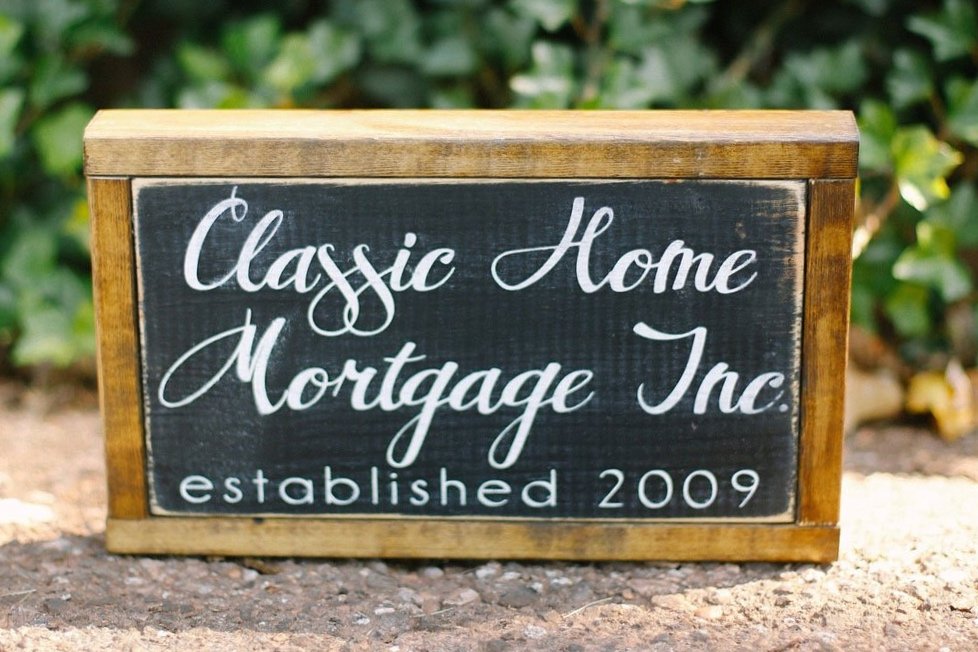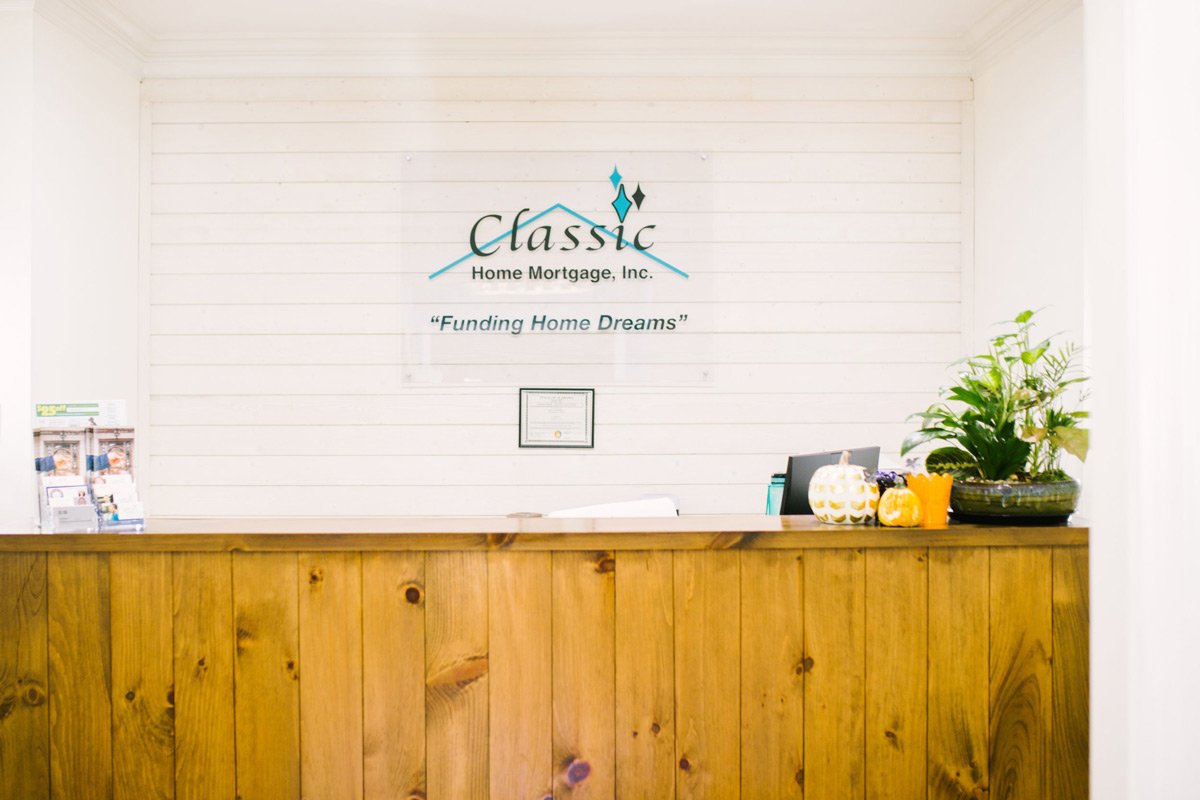Guide To Conventional Mortgages: What Is A Conventional Loan?
Are you ready to take the next step towards homeownership? A conventional loan may be the perfect path for you. With its straightforward process, you can secure a loan that fits your needs and budget.
Wondering about refinancing or adding renovation costs to your mortgage? We've got you covered. And don't worry about PMI - we'll break it down for you.
So, are you ready to discover the benefits of a conventional loan? Let's dive in!
What Is A Conventional Loan? Advantages Of A Conventional Loan
To understand what a conventional loan is, you'll need to know that it refers to a home loan that is not insured or a government-backed loan. In other words, it's a mortgage that is not backed by any government agency, such as the Federal Housing Administration (FHA) or the Department of Veterans Affairs (VA). Instead, these loans are provided by private lenders, such as banks or credit unions.
These loans typically require a higher down payment and have stricter qualification criteria compared to government-backed mortgages. However, these loans also offer certain advantages, such as more flexibility in terms of loan amount and repayment options. Conventional loans are a mortgage also called a conventional mortgage, they can be conforming loans or nonconforming loans.
Advantages Of A Conventional Mortgage
One advantage of a conventional loan is the flexibility it offers in terms of loan amount and repayment options. With a conventional mortgage, you have the freedom to choose the loan amount that best suits your needs and financial situation. You can also select from a variety of repayment options, such as fixed-rate mortgage or adjustable mortgage rates, allowing you to customize your mortgage to fit your budget and long-term goals.
Overall, a conventional mortgage is a common type of mortgage loan that provides you with the flexibility and options you need to make homeownership more affordable and manageable even in 2023.
Eligibility Requirements
If you qualify for a conventional loan, you can take advantage of the benefits of a conventional mortgage. To qualify, you need a good credit score, typically above 620, and a stable income. Lenders will also look at your debt-to-income ratio, which should be below 45%. Additionally, you will need to provide documentation of your employment history, income, and assets. These requirements ensure that you have the financial stability to make regular mortgage payments.
Remember to contact a mortgage lender or broker like Classic Home Mortgage so we can shop around and compare rates from different lenders to find the best terms for your conventional mortgage.
How Soon Can I Refinance My Conventional Mortgage?
You can typically refinance your conventional mortgage within a few months. Refinancing your mortgagel move that allows you to secure a lower interest rate, reduce your monthly payments, or even shorten the term of your loan.
If you're considering refinancing, here are three things to keep in mind:
Check the terms of your current mortgage: Before you start the refinancing process, review your current mortgage agreement. Some lenders may charge a penalty for refinancing within a certain time frame, so it's important to understand any potential costs involved.
Evaluate your financial situation: Take a close look at your current financial situation and determine if refinancing is the right decision for you. Consider factors such as your credit score, income stability, and future financial goals. It's also a good idea to calculate the potential savings you could achieve through refinancing.
Contact us for the better rates: Let us take the time to shop around and compare rates from different lenders. This will help you find the most competitive rates and terms for your refinanced mortgage.
Can I Roll Closing Costs Into My Conventional Loan?
To roll your closing costs into your mortgage, you have the option to include them in your loan. This can be a great way to reduce your upfront expenses and spread out the cost over the life of your loan.
Here are three benefits of rolling your closing costs into your conventional loan:
Lower out-of-pocket expenses: By including your closing costs in your loan, you don't have to pay for them upfront. This can be especially helpful if you're struggling to come up with the cash needed to cover these expenses.
Easier budgeting: Rolling your closing costs into your mortgage allows you to spread out the cost over the life of your loan. This means you can include the expenses in your monthly payment, making it easier to budget and plan for your future expenses.
Potential tax benefits: In some cases, you may be able to deduct your mortgage interest and closing costs on your taxes. By rolling your closing costs into your mortgage, you may be able to take advantage of these deductions and potentially save money on your taxes.
Do Conventional Loans Require PMI?
One thing to consider when getting a conventional loan is whether or not you'll need to pay for private mortgage insurance (PMI),PMI is typically required by lenders when you have a down payment of less than 20% of the home's purchase price. It's an additional cost that you'll need to factor into your monthly mortgage payment.
The purpose of PMI is to protect the lender in case you default on your loan. The cost of PMI varies depending on factors such as your credit score and the size of your down payment. You may be able to avoid paying PMI if you can make a larger down payment or if you qualify for certain loan programs.
However, it's important to note that even if you're required to pay private mortgage insurance initially, you may be able to cancel it once you've built up enough equity in your home. This can be done by reaching a certain loan-to-value ratio, usually 80%. Unlike FHA loans where mortgage insurance premiums can not be canceled once the borrower reaches a certain amount of equity in the home.
Other Types Of Conventional Loans: Can You Add Renovation Costs To Conventional Loan? HomeStyle Renovation Mortgage
When considering the HomeStyle Renovation Mortgage, it's important to explore the potential benefits and costs associated with this loan option. This type of mortgage allows you to finance both the purchase of a home and the cost of renovations or repairs.
Here are three reasons why you might want to consider the HomeStyle Renovation Mortgage:
Convenience: With this loan, you can combine the cost of buying a home and renovating it into one mortgage. This means you won't have to take out a separate loan for the renovations, saving you time and paperwork.
Increased Home Value: By using the HomeStyle Renovation Mortgage to make improvements to your new home, you can potentially increase its value. Whether it's updating the kitchen, adding an extra bedroom, or renovating the bathroom, these improvements can make your home more attractive to future buyers.
Personalization: With this loan, you have the opportunity to customize your new home to fit your needs and preferences. Whether you want to create an open floor plan, install energy-efficient appliances, or add a backyard patio, the HomeStyle Renovation Mortgage gives you the flexibility to make your dream home a reality.
Other Types Of Conventional Loans: One Time Construction to Permanent loan
If you're looking for a convenient way to finance your home construction and permanent loan, consider the benefits of a One Time Construction to Permanent loan. With this type of loan, you can save time and money by combining your construction and permanent financing into one loan. Instead of having to apply for two separate loans, you only need to go through the application process once. This means less paperwork and less hassle for you.
One of the key advantages of a One Time Construction to Permanent loan is that you only have to pay closing costs once. When you apply for a traditional construction loan, you may have to pay closing costs at the beginning of the construction phase and again when you convert the loan to a permanent mortgage. But with a One Time Construction to Permanent loan, you can avoid the extra closing costs and save money in the process.
Other Types Of Conventional Loans: Non Conforming Conventional – Jumbo Loans
These loans are designed for individuals who need to borrow more than the standard loan limits set by Fannie Mae and Freddie Mac.
Here are some things you need to know about Non Conforming Conventional - Jumbo Loans:
Higher loan limits: With jumbo loans, you can borrow a larger amount of money compared to regular conventional loans. This can be beneficial if you're looking to purchase a high-value property or if you live in an expensive housing market.
Stricter requirements: Since jumbo loans involve larger amounts of money, lenders often have stricter qualification criteria. Expect to provide more documentation, have a higher credit score, and make a larger down payment.
Conventional Loan Requirements: Is It Hard To Get Approved For A Conventional Loan?
Getting approved for a conventional loan can be challenging due to stricter qualification criteria and higher credit score requirements. But don't worry, with a little preparation and effort, you can increase your chances of getting approved.
First, make sure you meet the minimum credit score requirement. Most lenders prefer a credit score of 620 or higher, so it's important to check your credit report and address any issues before applying. Paying off any outstanding debts and making all your payments on time can help improve your credit score.
Next, focus on meeting the income and employment requirements. Lenders want to see stable employment and a steady income that can cover the monthly mortgage payments. Make sure you have documentation to prove your income, such as pay stubs and tax returns.
Additionally, you'll need to have a low debt-to-income ratio. This means that your monthly debt payments should not exceed a certain percentage of your monthly income. Lenders typically look for a debt-to-income ratio of 45% or lower.
Finally, gather all the necessary documents, such as bank statements, W-2 forms, and proof of assets. Being organized and prepared will make the application process smoother and increase your chances of approval.
What Is The Downside Of A Conventional Loan?
The downside of a conventional loan is that it often requires a higher credit score and stricter qualification criteria. But don't worry, here are three things to keep in mind to navigate this potential drawback:
Credit Score Requirements: Unlike some other loan options, conventional typically require a higher credit score. Lenders may look for a minimum credit score of 620 or higher. So, it's important to check your credit score and take steps to improve it if necessary.
Down Payment: Conventional loans usually require a larger down payment compared to other loan types. While some loans may offer low or even zero down payment options, conventional loans generally require a down payment of at least 5% to 20% of the home's purchase price. Saving up for a down payment is an important step in the homebuying process.
Stricter Qualification Criteria: Lenders who offer conventional loans often have stricter qualification criteria. They may consider factors such as your debt-to-income ratio, employment history, and financial stability. It's crucial to have your financial documentation in order and be prepared to provide evidence of your income and assets.
Despite these potential challenges, many individuals and families find that conventional loans are still a great fit for their home buying needs. So, who is a good fit for this loan? Let's wrap up with that.
Who is a Good Fit for Conventional Loans?
If you have a higher credit score and can meet stricter qualification criteria, you may find that a conventional loan is a good fit for you. These loans are ideal for borrowers who have a credit score of 620 or higher and a stable income. These loans are not backed by the government, so lenders have more flexibility in setting their own eligibility requirements.
One advantage of conventional loans is that they offer lower interest rates compared to other types of loans. If you have a good credit history and a higher credit score, lenders see you as a less risky borrower and are more likely to offer you a lower interest rate. This can save you a significant amount of money over the life of the loan.
Another benefit of conventional loans is that they have more flexible terms. You can choose from fixed-rate or adjustable-rate mortgages, depending on your financial goals and preferences. Additionally, these loans allow you to finance a wide range of property types, including single-family homes, condominiums, and multi-unit properties.
Conventional Loans Vs. FHA Loans
You're probably wondering about the differences between conventional and FHA loans, aren't you? Well, let's dive right in.
Conventional loans are typically offered by private lenders and aren't backed by the government. They're a bit more stringent when it comes to credit scores and down payments, often requiring a minimum of 620 and 5% respectively.
On the other hand, FHA loans, insured by the Federal Housing Administration, are designed to help low-to-moderate income borrowers. They're more lenient, accepting lower credit scores and down payments as low as 3.5%. However, they require borrowers to pay mortgage insurance premiums which you will need to factor into your cost and budget.
Conventional Loans Vs. VA Loans
In comparison to a VA mortgage, you'll find that traditional lending options often require a higher credit score and down payment. You'll need a sizable chunk saved up to meet the conventional loan's down payment requirement. For a VA loan, that's not the case. If you're a veteran or active military member, you can secure a VA loan with no down payment at all. Plus, the credit requirements are typically more lenient.
Just remember that you can’t use a VA loan to buy a second home. The Veterans Affairs requires that the loan holder actually occupy the home they purchased with a VA loan.
Conventional Loans Vs. USDA Loans
Comparing traditional financing to a USDA mortgage, you'll see a stark difference in down payment requirements and eligibility criteria.
With a conventional, you're typically required to put down at least 5% of the home's price. But with a USDA loan, you could potentially secure your dream home with no down payment at all! That's a huge relief on your wallet.
The eligibility criteria also differ significantly. Conventional loans are available to almost anyone with solid credit and income. But USDA loans are specially designed for low to moderate-income buyers in USDA approved rural or suburban areas.
Call us now to begin FUNDING HOME DREAMS today!
Your dream home is just a call away.



